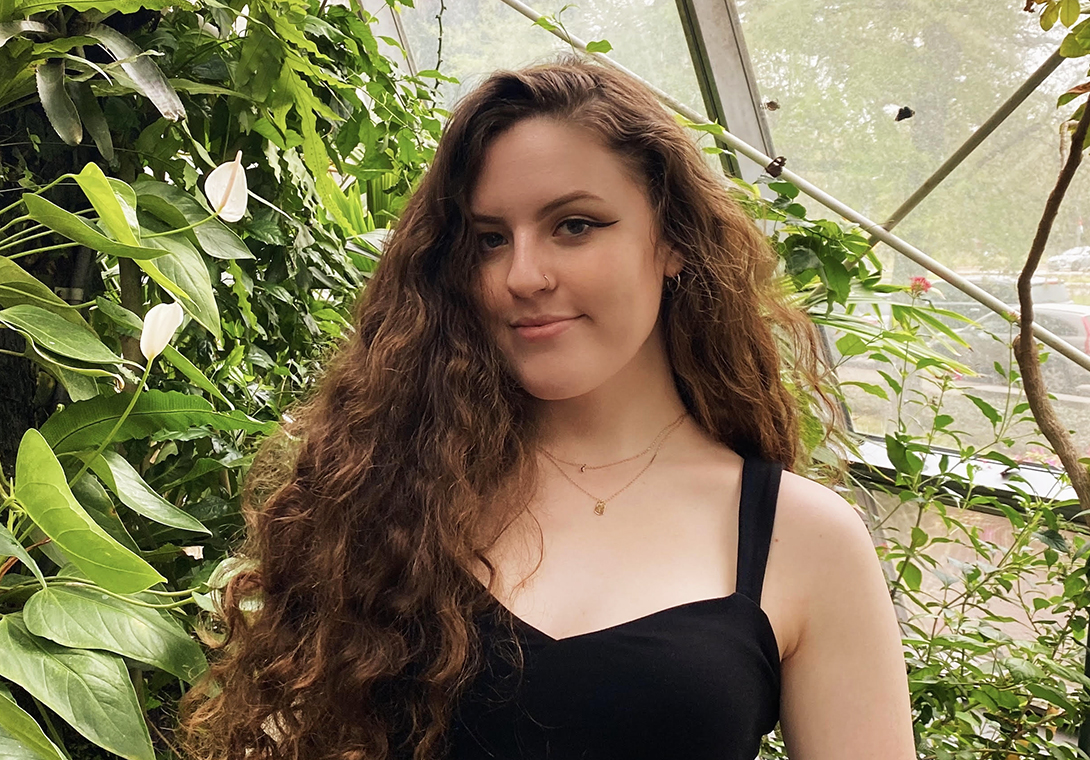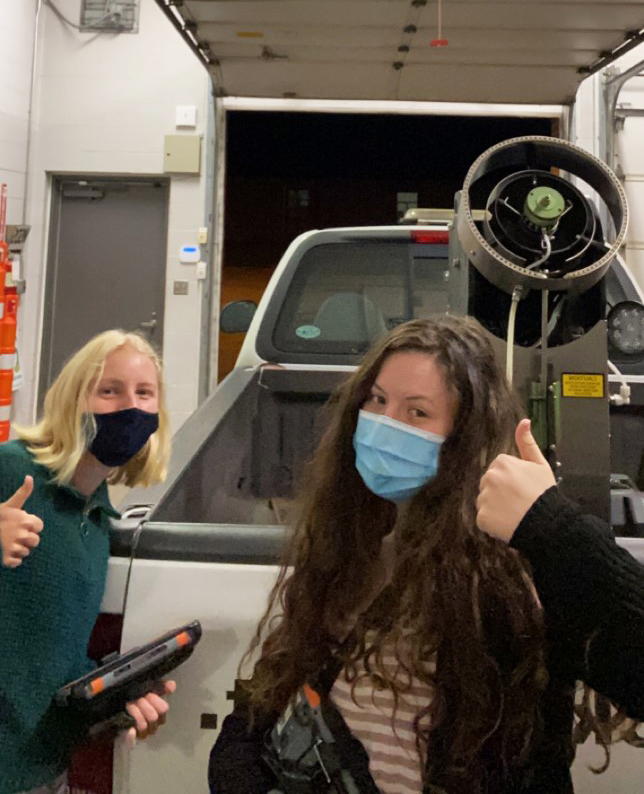Public Health Buckeyes: Amelia Soergel
Senior BSPH student assists mosquito monitoring and control

Amelia Soergel, a fourth-year student specializing in environmental public health with a minor in entomology, used her senior capstone experience to work at Richland Public Health in Mansfield, Ohio, to help track and regulate local mosquito populations.
Why did you decide to pursue public health?
My senior year of high school I took a microbiology class, which had a section on food safety, epidemiology and public health. After class one day, I asked my teacher what she knew about public health, and she told me all about different types of work in the field. After doing some research, I decided public health was the right fit for me.
Can you tell us about your entomology minor and how it relates to public health?
Vector-borne diseases like West Nile Virus cause hundreds of thousands of deaths per year, and I thought having an entomology background would help me stand out in public health while also giving me sound knowledge I’ll need to perform well in related future roles.
What are your duties as an environmental health aide at Richland Public Health?

This is my third summer interning in the Environmental Health Department’s Vector Control Program. The primary objective of my work is monitoring and controlling mosquito populations throughout Richland County. I do this by setting mosquito traps in the county, collecting and counting the specimens, and then sending them to the Ohio Department of Health to get tested for West Nile Virus. When a high trap number or a positive mosquito is detected, we spray pesticide in a half-mile radius around the trap site to control the mosquitoes. I also investigate community complaints about mosquitoes or standing water, for which we can go out and trap or apply larvicide to prevent mosquito larvae from growing into blood-sucking adults.
Additionally, we do a lot of education on mosquito prevention, such as draining standing water (mosquitoes can lay eggs in areas as small as a bottle cap!) and wearing insect repellent. Prevention and control are incredibly important facets of public health, as preventing mosquitoes is much easier than treating a West Nile Virus case.
What have you taken away from this experience?
Not only has it solidified my passion for public health, but it has given me a good picture of the reality of working in this field and the challenges that come with it. I’ve learned so much about how a public health department functions and the different roles I could take on within it. I often get to shadow my coworkers on inspections and I cannot thank them enough for their willingness to teach me as much as they can. I have a much better understanding of the significance of public health at the local level and how important it is to protect my community — and myself — from health risks and hazards. Every day I know I am helping to prevent disease or, at the very least, preventing mosquito bites, and it has been such a blessing for me.
What advice would you give incoming students?
Make sure you’re taking some alone time to do things you enjoy. I spent my first two years under constant stress from school and felt disconnected from my hobbies. “Me time” was one of the hardest things to fit into my schedule, but when I started taking breaks, I felt much better!
How do you see your public health education shaping your future?
The knowledge I’ve gained from my public health classes has already had a tremendous impact on my life. I apply concepts I’ve learned in the classroom to my work every single day. I believe I’ll be well prepared for a career in public health, and my future will be heavily influenced by the professors I’ve had and classes I’ve taken at Ohio State.
About The Ohio State University College of Public Health
The Ohio State University College of Public Health is a leader in educating students, creating new knowledge through research, and improving the livelihoods and well-being of people in Ohio and beyond. The College's divisions include biostatistics, environmental health sciences, epidemiology, health behavior and health promotion, and health services management and policy. It is ranked 22nd among all colleges and programs of public health in the nation, and first in Ohio, by U.S. News and World Report. Its specialty programs are also considered among the best in the country. The MHA program is ranked 5th and the health policy and management specialty is ranked 21st.